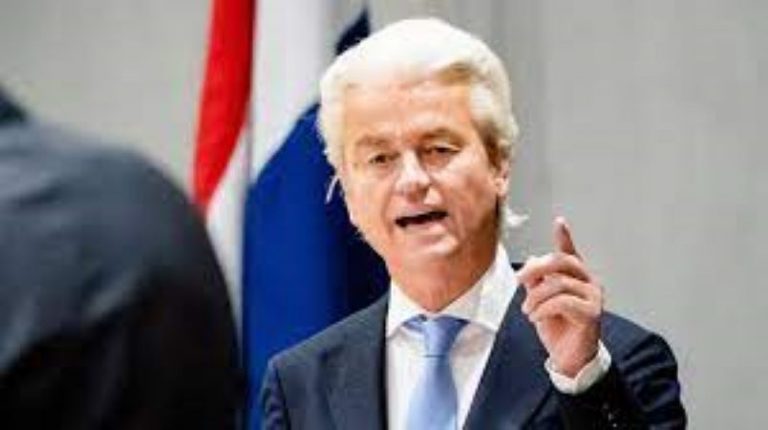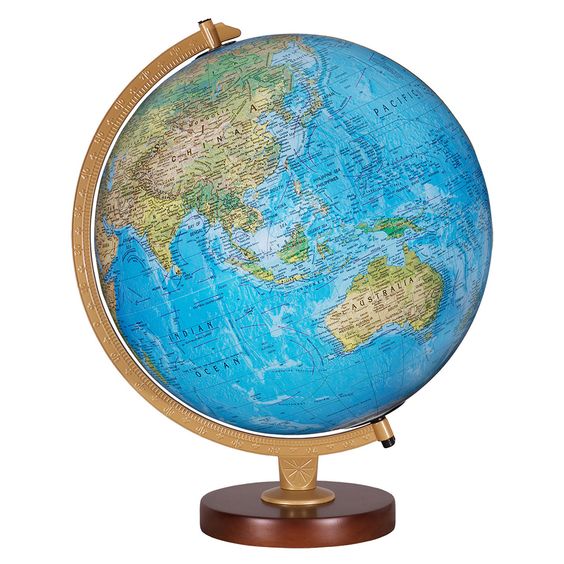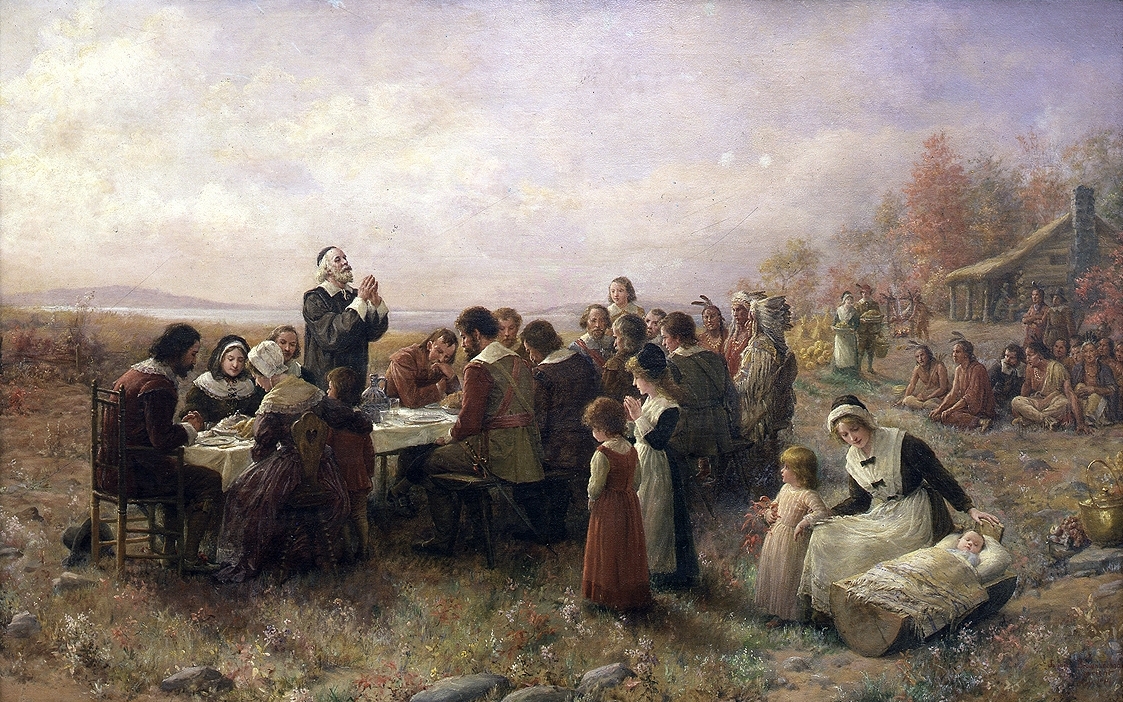
The leader of the Dutch Freedom Party likes Putin, Margaret Thatcher and Israel.
By Tom Arms
White-haired Dutch politician Geert Wilders hates the label far-right. Neither is he particularly fond of being called an extremist or fascist.
Wilders also dislikes Islam, the Koran, the EU, asylum seekers, and most foreigners in general. He is the avowed leader of the “Counter-Jihad Movement.”
He has been in and out of Dutch courts on hate charges; was banned for several years from Britain, Germany and Austria and has a permanent armed police guard to protect him from assassination. Wilders has attacked the Koran as a “fascist book”, Mohammed as “the devil” and Islam is a “retarded culture.”
He does have likes. They include: Vladimir Putin, Margaret Thatcher and Israel. He is less keen on France’s Marine Le Pen and Hungary’s Viktor Orban. On Donald Trump he is ambivalent. He approves of Trump’s anti-Muslim and America first policies, but questions his honesty and claims to have won the 2020 elections.
The leader of the Dutch Freedom Party also wants to turn back the clock to 1830 and reunite the Netherlands with the Flemish-speaking region of Belgium.
Wilders political beliefs are important because he is in line to be the next Prime Minister of the Netherlands. And as one of the founding members of the European Community the Netherlands has an outsized voice in the EU and beyond.
His premiership is not guaranteed. The Netherlands has a proportional representation system and a leader needs an outright majority of the 150-seat parliament to form a coalition. Wilders this week won the most seats—37– but the other main parties have either point-blank refused to serve with Wilders or expressed extreme reluctance.
It is quite likely that the debate over the suitability of Wilders as Dutch PM will mean that the Netherlands breaks the 2017, 225-day record for agreeing a coalition.
Five years ago, Wilders’s Freedom Party was the potential junior partner in a coalition with Mark Rutte’s People’s Party for Freedom and Democracy (VVD). It took 225 days of difficult negotiations because no one would go into government with Wilders, and in the end a government was formed without him.
Rutte’s government collapsed earlier this year over the perfect issue for Wilders—asylum and immigration.
Wilder’s decided to exploit the situation by revising his party manifesto to make it more acceptable to the Dutch voting palate. He promised to be “prime minister for everyone” and proposals to ban the Korean and Islamic schools were “put in the fridge.”
But that was it as far as concessions to liberals went. Wilders still proposed a referendum on EU membership and a ban on the wearing of the Islamic Hijab. He wants to “push back” asylum seekers coming from other EU countries; stop Muslim immigration, pay immigrants to leave the Netherlands; require work permits for EU nationals; end permanent residence visas and reduce the number of foreign students.
Immigration has become an increasingly toxic topic in Dutch politics. Only five percent of the population is Muslim, but the Netherlands is one of Europe’s most overcrowded. There are 1,353 people packed into each square mile compared to 600 in England or 96 in America. On top of that, the Netherlands is short 350,000 homes to house its population.
Also read: Why Wilders won: Election boosts Dutch far right, but what happens next?
Despite the fertile conditions for Wilders xenophobia, the potential PM’s policies face a number of obstacles. The first has already been discussed—forming a coalition. The second is persuading your coalition partners to enact the necessary legislation. The third is fighting the challenges to that legislation in the Dutch constitutional court and the fourth is fighting them in the European Court of Justice.
Foreign policy, however, is another matter. Wilders’ has been a staunch supporter of Israel since he went there as a young student. The Jewish state, he has declared, “is the West’s first line of defense against the threat of Islam.”
He is also pro-Russian. Wilders has described Putin as a “true patriot” and backed unsuccessful parliamentary motions to stop aid to Ukraine, end sanctions against Russia and declare Dutch neutrality in any dispute between Russia and Ukraine.
In spite of all his policies, Wilders is described as an “extremely agreeable affable” man who gets on well with even his bitterest rivals. Perhaps that helps to explain an electoral victory that has rocked the foundations of European politics.
 World Review
World Review
Diplomatic Miracles do happen. And if you need proof just look at the exchange of hostages currently taking place between Hamas and the Israeli government.
Enmity, internal divisions and complex diplomatic channels have all been overcome to allow not only a hostages-for-Palestinian-prisoners exchange but also a ceasefire and aid convoy into Gaza.
There were problems. One was the opposition by far-right Israeli cabinet ministers to any agreement on anything with Hamas. The other was the fact that 50 of the roughly 240 hostages were held not by Hamas but the even more extreme Islamic Jihad.
Then there were the complex diplomatic channels. There are no direct links between Hamas and Israel. Instead the Israelis talked to the Americans who talked to the Qataris who talked to Hamas who talked to Islamic Jihad. There was—still is—a danger of mixed or misinterpreted signals in this game of diplomatic Chinese whispers.
But so far so good. The two sides have agreed a four-day ceasefire during which the Palestinians will release 13 Israeli hostages a day. As soon as their release is confirmed, Israel will set free 50 Palestinians held in Israeli prisoners.
At the same time, the aid convoy that has been sitting on the Gaza-Egyptian border will cross into Gaza to deliver much needed water, fuel, food and energy supplies. 300 Lorries are expected to cross the border today (Friday). The UN World Food Program says it is not enough, but it is a start for the 2.2 million aid dependents Gazans.
There is even another potential diplomatic miracle. According to diplomatic sources, the Israelis have offered to extend the ceasefire a day at a time in return for the release of 20 hostages per day.
But hanging over the good news is the real danger that the ceasefire could quickly collapse. There are many danger points. One is that Islamic Jihad may back out of the hostage deal. Relations between it and Hamas are poor.
The other is Israeli insistence that Palestinians who have fled northern Gaza for southern Gaza do not return home during the ceasefire. They fear that returning Palestinians would include Hamas fighters. But from the Gazans point of view, they want to retrieve their belongings and, in many cases, bury their dead.
Then there is the very real possibility that a frightened, nervous, hate-filled and trigger-happy Israeli soldier or Hamas fighter will loose a deadly rifle volley.
Finally, there is the possibility of a major conflict with Hezbollah on the Israel-Lebanon border. Hezbollah attacks have significantly increased since October 7, but so far the presence of two US aircraft carriers off the coast of Lebanon has been an effective deterrent.
***
The Argentina peso may soon be no more. The country’s newly-elected anarcho-capitalist (his phrase) president Javier Milei wants to ditch it for the US dollar.
In many ways the move would be recognition of the inevitable. With 140 percent inflation, the peso has been rendered virtually worthless. Almost all financial transactions in Argentina are now conducted with US dollars.
Argentina would not be the first or only country to adopt the almighty dollar as its currency. Eleven countries and five US territories are dollar economies. But Argentina—the 22nd largest economy in the world with a population of 45 million—would be by far and away the biggest outside the United States.
It would also be a huge step for the second largest – but much troubled—Latin American economy. It would mean handing control of its monetary policy over to Washington’s Federal Reserve Bank. But then, that might not be as difficult as it seems because Milei also wants to abolish the Argentine Central Bank.
Milei’s economic policies are one of a string of libertarian, anti-establishment, Trump-like proposals. They include the abolition of the ministries of culture, women, health and education. He wants to privatize the state energy company and the state’s public broadcasting services.
Cuts are planned in welfare payments and all public works will stop. “There should be no more spending,” declared Milei after it was announced that he had beaten opponent Sergio Massa by 11 points.
On the social side, Milei plans to abolish abortion, allow the sale of human organs. Loosen gun control and downplay the crimes of the military government of the 1970s and 1980s. Donald Trump has declared that Milei will “make Argentina great again.”
***
Thanksgiving is an unusual holiday. It is not connected to any religion. Neither does it mark a major political event, nor does any ethnic or national group claims it.
The absence of all the above is what gives it a universal appeal in America. In a diverse and too often divided society, the celebration of Thanksgiving is something on which ALMOST all Americans can agree to celebrate.
The original Thanksgiving dates back to 1621. The Puritan Pilgrims had landed at Plymouth Rock just before Christmas the year before. It was a bad time to arrive. The New England winter was just about to set in and the colonists had limited supplies. Half of them were dead by spring.

Fortunately they developed a working relationship with the local Wampanoag Native Americans through the good offices of one Squanto who had surprisingly spent several years in England.
With the help of Squanto and the Wampanoag they learned which crops to plant and where to find game. The result was a three-day feast in December 1621. The guests of honor were their new friends the Wampanoags.
There is, however, a not so publicized epilogue. As the colony expanded beyond its Plymouth beach head, the settlers came into increasing conflict with the Wampanoags and other tribes. Soon arrows and musket balls were flying.
In 1636 the first major war between Europeans and Native Americans occurred. The Pequot War ended two years later with the extinction of the Pequot tribe and a template for future relations between European settlers and Native Americans. In1970, Native Americans declared America’s Thanksgiving Day as a “national day of mourning.”
________________
 Tom Arms is foreign editor of Liberal Democrat Voice. He is currently working on an update of his “Encyclopaedia of the Cold War” and co-hosts the world affairs podcast “TransAtlantic Riff.”
Tom Arms is foreign editor of Liberal Democrat Voice. He is currently working on an update of his “Encyclopaedia of the Cold War” and co-hosts the world affairs podcast “TransAtlantic Riff.”